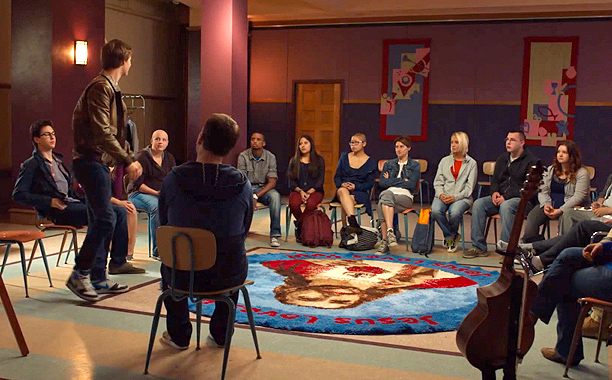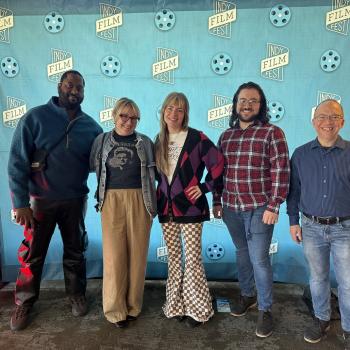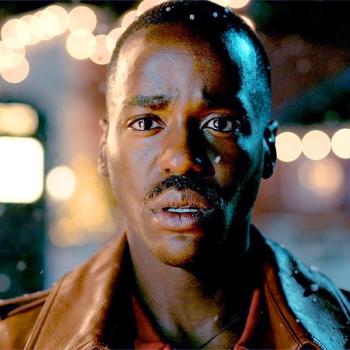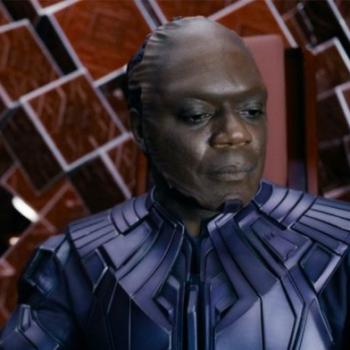I saw the movie The Fault in Our Stars recently, not having read the book. I thoroughly enjoyed it. Rachel Marie Stone writes about it,
If there is a fault in The Fault in Our Stars (apart from the occasionally irritating teenage dialogue), it is that it dismisses religion based on the worst sorts of caricatures — and the movie is far guiltier of this than is the book. The support group through which Hazel and Augustus meet is held in a church and led by a vaguely religious man who has nothing more substantial to offer than the same sorts of easily debunked platitudes (“encouragements”) Augustus’ parents have embroidered on throw pillows and displayed on the wall.
After I saw Fault in the theater, I re-read Ecclesiastes and noticed just how divergent American Christianity is from the Bible it purports to revere. So many of Augustus’ existential anxieties are echoed in its pages. Yes, the dead are forgotten. Yes, there is value in simply enjoying the life has right now, in this moment. And yes, love for other people here and now — even though we are all doomed — makes life worth living.
 I actually had a different response. What Stone only rediscovered after some post-viewing investigation, immediately struck me, as the protagonists discussed and disagreed about matters like God, angels, and the afterlife with refreshing openness.
I actually had a different response. What Stone only rediscovered after some post-viewing investigation, immediately struck me, as the protagonists discussed and disagreed about matters like God, angels, and the afterlife with refreshing openness.
What it took me a little reflection to conclude was that the church in the movie is far from a caricature. The cartoonish over-eager support group leader is not unlike people we’ve encountered in real life. People who respond to grief by trying too hard to help others, grabbing a guitar and singing and making religious paraphernalia. As the movie indicates, that is not the worst of the possible ways of dealing with grief. But in the movie, we don’t get the impression that he is in any sense the official face of St. Paul’s Episcopal Church.
What the church does is make room for him. It makes room for Augustus and Hazel and others to connect. To be authentic. To be open about faith, doubt, suffering, and grief.
And as long as physical church buildings continue to provide that, I hope that they will not simply vanish into cyberspace.
See also the recent articles by Jodi Eichler-Levine and Linnea Peterson on religion in The Fault in Our Stars.
Have you read The Fault in Our Stars or seen the movie? What did you think of it?














